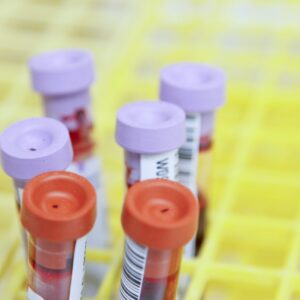Description
D11 – CARDIOVASCULAR
RISK PROFILE 2
Cholesterol – It is a high-density substance found in your blood. Your body needs it to create healthy cells, however, high levels will increase your risk of a heart condition. It develops fatty deposits in your blood vessels. Eventually, these deposits grow, creating it tough for enough blood to flow through your arteries. Sometimes, those deposits will break suddenly and kind of clot that causes heart failure or stroke.
Triglycerides – High triglycerides can cause high blood pressure, diabetes, obesity, high levels of “bad” LDL cholesterol, and low levels of “good” HDL cholesterol.
HDL Cholesterol – Good cholesterol
LDL Cholesterol – Bad cholesterol
Non-HDL Cholesterol
Apolipoprotein A – Apolipoprotein A is a protein carried in good cholesterol called HDL. It helps start the process for HDL to remove bad types of cholesterol from our body.
Apolipoprotein B Lipoprotein (a) – Raised levels of apo B results in elevated levels of LDL-C (bad cholesterol) and non-HDL-C and are associated with an increased risk of cardiovascular disease (CVD).
Hs-CRP – The high-sensitivity C-reactive protein test is a blood test that finds lower levels of C-reactive protein (CRP). This type of protein measures general levels of inflammation in the body. It can be used to find the risk for heart disease and stroke in people who don’t already have heart disease.
Lp-PLA2 (PLAC) Test – It measures the quantity of Lp-PLA2 within the bloodstream. Enzyme Lp-PLA2 can assess the quantity of inflammation in your arteries thanks to a build-up of cholesterol. The PLAC® Test Predicting is employed for coronary heart condition risk in conjunction with clinical and other risk assessments.
Homocysteine – Homocysteine is an amino acid produced after proteins are broken down. A high level can cause arterial damage and blood clots in your blood vessels. A high level of homocysteine usually indicates a deficiency in vitamin B-12 or folate.
Fibrinogen – It is a protein produced by the liver. It is usually helping to evaluate your body’s ability to form and break down blood clots.


